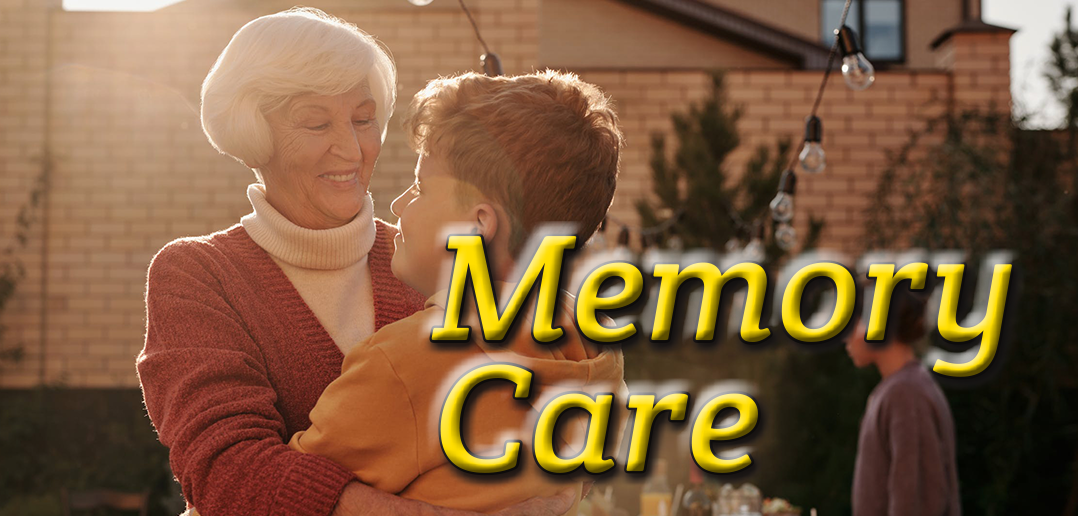According to the Alzheimer’s Association, more than six million Americans are living with Alzheimer’s disease, and one in three seniors die with some form of dementia. Though it is becoming more common throughout the country, it is no easier to live with or watch a loved one lose their memory. Memory loss is a scary and uncomfortable condition to experience, both as the individual and as the caregiver. We spoke to some local businesses and professionals about how they can help you care for your loved one with memory loss.
An Advisor to Help You through the Process
Oasis Senior Advisors (oasissenioradvisors.com/omaha) is available to assist families and future residents of memory care communities in finding the right fit in a senior living community. They offer a personal, compassionate touch tailored around the families and residents they serve.
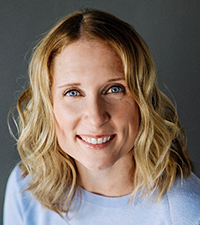
Jenny Trebold
Oasis Senior Advisors
“Many seniors and their families do not know where to start in the process of finding memory support communities that can assist with the challenges that come with dementia,” explained Owner Jenny Trebold. “At Oasis, we start with an in-depth discussion over the phone or in person to get to know the senior and their social, medical, and financial needs. We are able to pinpoint communities that are the best fit for the senior. We coordinate tours and attend tours with those we serve.”
The advisors at Oasis understand that many people are not sure what to expect when it comes to this major life transition, which is why they can guide their clients through the process and help them understand what to expect and look for in a senior living community. They will discuss the benefits of memory care communities and help you find the right senior housing option for everything from independent living to respite services, hospice care, residential care homes, memory support, and more. In addition to this, Oasis has a variety of trusted resources that they coordinate with to assist families with services such as legal, financial, and counseling.
“It is our goal to simplify the process of finding the appropriate senior living community for those who are experiencing memory loss,” Jenny said. “It is very important to make sure the residents and the families we serve have the resources available to them to be as safe and successful as possible. We walk hand in hand throughout the process of finding the best fit in a community.”
Elder Law
When a loved one begins to suffer from memory loss, legal issues such as estate planning can become more difficult to conduct while also being a matter of concern. The attorneys at Burnett Wilson Law, LLP (burnettwilsonlaw.com), are skilled in Elder Law and can help your loved one and family navigate legal aspects amidst memory loss.
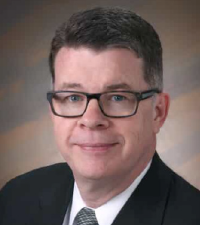
David Thompson
Burnett Wilson Law, LLC
“Burnett Wilson Law is unique in that our primary focus is on Elder Law, which is broader than estate planning and involves issues far beyond what’s in someone’s will,” said Associate Attorney David Thompson. “I cared for my father up until his death from dementia, and I currently care for my mother, who has Alzheimer’s and lives in an assisted living facility that has a memory care unit she will move into when it becomes necessary. These experiences inform my own practice every day. I can empathize, and I think this helps clients and their families feel more comfortable when we talk about these difficult issues.”
The chief goal for the attorneys at Burnett Wilson Law is to help families find the best situation for their loved one. This can involve recommending people who are facility locators or provide transition services. Having professionals like this to offer guidance helps ensure that all the needs and concerns of clients and families are addressed.
“The primary service that we provide is helping clients understand and plan for long-term care either at home or in a facility,” explained David. “We also help clients with traditional estate planning, including health care and financial powers of attorney, which clients often don’t think about because they are focused on their wills or trusts. All of these issues can be especially acute in the case of seniors with dementia. For one thing, this means that the client will require memory care, which is only available in certain facilities and is more expensive than non-memory care. In addition, dementia makes it even more important to think about who they designate as powers of attorney because it is likely that those individuals will have to make important decisions for the client once their dementia has made it impossible for them to make decisions themselves.”
As there is no way to tell when an emergency situation may arise in which it is important to know what the client’s wishes are, David recommends that clients plan as far ahead as possible. When it comes to things such as Medicaid planning, he recommends beginning to plan at least five years in advance of needing care. Burnett Wilson Law’s attorneys have experience and knowledge in navigating the planning process and handling any challenges that may arise. They work hard to ensure that their clients are making the best plans possible for themselves.
In-Home Care
Maybe your loved one isn’t ready to be in assisted living, and you’d like to keep them in the familiar place that they know and recognize. Being the sole caregiver of a loved one with memory loss can be difficult and overwhelming, so contact CCA Home Care (ccahomecare.com) and learn about how their Nurse Registry can match you with the right caregiver to help you look after your loved one.
The Nurse Registry screens and refers caregivers who work for families. The care is client-directed, ensuring that you make the decisions regarding your care for that of your loved one. This unique service has proven time and again to be of superior quality as evidenced by CCA’s reputation for providing valuable care.
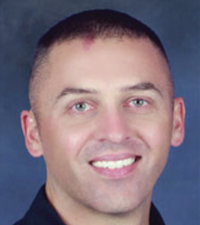
Kyle Johnson
CCA Home Care
“Clients that we begin services with are typically just starting to notice the difficulties of living independently in their own homes and are starting to need assistance with their daily activities,” said Kyle Johnson, president. “We are the largest Home Care Registry in Nebraska, and our model is different than any other home care provider available to clients. All of our caregivers are licensed CNAs and work as independent contractors for their clients. Before any caregiver is allowed to work with a client, they are run through all background checks, criminal history reports, work authorization in the United States, CPR certified, must carry their own professional liability insurance, and are bonded through our company.”
Sometimes your loved one just needs a check-in and some companion care at the moment, but it could transition into daily needs, such as bathing, feeding, medication administration, and bathroom assistance. Family members caring for a loved one often still have to work full-time while also taking care of children or grandchildren, or family may even live out of town and caring for their loved one may not be an option. CCA can provide for daily needs and report to the family directly after a visit. This way, you know your loved one with memory loss is being cared for and has help right there with them.
One great option for home care services is Key Home Care. Key Home Care (keyhomecare.us) offers personal caregivers, 24-hour support, beside sitters, respite care, hospice care, and companionship.

Desiree Rossi
Key Home Care
“Key prides itself on being available 24/7 for seniors living in their homes needing care,” said Community Liaison Desiree Rossi. “The main objective for Key is to provide quality care and put every effort into making sure seniors get to stay in their own home for as long as possible. It is a very hands-on company that will never leave a senior without care.”
It can be confusing and frightening to seniors when they move into new surroundings, especially if the new surroundings are a hospital or nursing home. Key Home Care’s compassionate sitters and caregivers can offer companionship and reassurance, whether sitting at the bedside in the hospital setting or helping your family member adjust to the new setting of a nursing home or assisted living.
Feel Right at Home
One of the difficulties of watching a loved one suffer from dementia is being unable to understand what it is like to be in their shoes. To truly grasp what your loved one is going through, reach out to Right at Home (rightathome.net/omaha-metro), a home care agency that allows seniors and adults with disabilities to remain safely in their homes, and take part in the Virtual Dementia Tour. This evidence-based, scientifically proven, sensitivity training program is offered to staff, client families, and the community to show participants what it is like to have dementia.
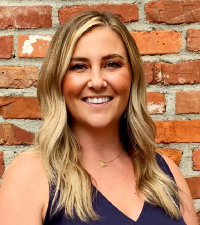
Alyssa Jelinek
Right at Home
“Participants go through a simulation where their physical, sensory, and cognitive abilities are temporarily altered with props and circumstances to simulate changes associated with aging and memory loss,” explained Alyssa Jelinek, director of community relations. “This allows for the participants to better understand what their loved ones or clients experience on a daily basis, and how to better serve their needs with more understanding and compassion.”
Many of Right at Home’s clients suffer from dementia or Alzheimer’s. Their caregivers have years of experience working with individuals with memory loss or dementia, and they offer various trainings to their staff to ensure they know how to best serve these individuals with the most compassion possible. Right at Home’s ultimate goal for helping seniors with memory loss is to keep them safe and comfortable in their homes, allowing them to continue doing the things they love safely.
“When a senior suffers from memory loss or dementia, it can be very scary for that individual and for their family,” said Alyssa. “They may experience confusion, agitation, and be fearful so it is important to have properly trained caregivers to care for them. Making sure they feel comfortable, redirecting them, meeting them where they are at, and ensuring them that they are safe are a few ways family and caregivers can help with a senior experiencing memory loss or confusion.”
Making Every Day the Best Day
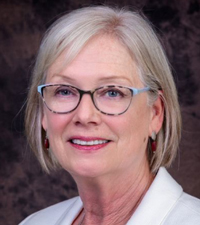
Marcia Houchin
CountryHouse Residence for Memory Care
CountryHouse Residence for Memory Care (countryhouse.net) is part of the Agemark family of senior living communities and is devoted exclusively to caring for seniors with Alzheimer’s and other dementias. Their friendly staff takes pride in their work, feeling like their employment is much more than “just a job,” according to the 2021 Best Workplaces for Aging Services report. To learn more about CountryHouse’s goals for helping seniors with memory issues, we spoke to Agemark’s National Director of Life Enrichment, Marcia Houchin.
“In a nutshell, our goal is to make every day the best it can be for each person,” said Marcia. “This is accomplished by creating ‘Moments of Joy’ through a variety of physical, social, spiritual, and intellectual activities. Individual personalities and preferences are also considered, and it’s important to treat people with respect and focus on their abilities rather than their losses.”
Marcia also shared some signs of memory loss that families should pay close attention to as their loved one ages. Occasional forgetfulness is a typical age-related change, but memory loss that disrupts daily life is a big indicator of something more serious. Other signs include challenges in planning or solving problems, difficulty completing familiar tasks, confusion with time or place, decreased or poor judgement, and changes in mood or personality. Of particular concern are potentially dangerous incidents, like forgetting to shut the stove off, leaving the house and forgetting how to get back, or a car accident or fender-bender.
“Early diagnosis is important, so if you notice signs of memory loss, get a full medical evaluation to determine if it’s Alzheimer’s or something else,” advised Marcia. “Knowing will help give you direction for planning: where to go for more information, what in-home care alternatives and support systems are available, how to make the home safe, and when to seek placement.”
Marcia explained that while many services can be provided in-home, it is difficult to match the range of activity engagement they offer – particularly social activities.
“Interacting with others is one of the most complicated things that human beings do, so even a healthy brain will atrophy when you take that away by isolating a person at home,” said Marcia. “Visit one of our facilities today to see what we have to offer, and further learn how we can take care of your loved one.”
Meeting Resident Needs as They Change
Midwest Geriatrics, Inc. (omahaseniorcare.org) established a home dedicated exclusively for seniors with Alzheimer’s or other dementias, called House of Hope Alzheimer’s Care. The facility spans 50,000 square feet and is made up of six neighborhoods, four of which are dedicated for memory care, with 10-11 private apartments each. To feel at home, each neighborhood has a kitchen, a family-style dining room, a living room, a washer and dryer, and a whirlpool bath. They provide around-the-clock dementia trained caregivers that are certified CNA’s and Medication Aides, as well as a Nurse Manager to oversee the overall care and medical needs of their residents. House of Hope also offers Adult Day Services to individuals in the community that are in need of additional support and socialization.
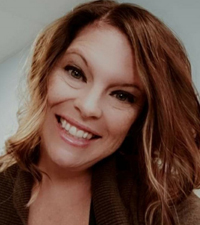
Carly Snider
Midwest Geriatrics, Inc.
“We provide the very best individualized care so our residents can live life to the fullest,” said Carly Snider, LPN, community nurse of House of Hope. “We deliver quality, individualized care to each resident and their unique needs. Each resident and their memory loss are different, so we ensure that each plan of care is developed strictly for each individual we serve. We recognize that memory loss may vary from day to day, as well as physical and cognitive abilities, so we train our caregivers to understand and recognize the changes that may happen from one moment to the next.”
House of Hope is a unique option in the memory care world because they are a nonprofit organization that provides the additional support of Adult Day Services, Respite Care Services, and Vigil Dementia Monitoring System that calls for assistance when residents are unable to do so, helping caregivers provide care when and where it is needed. The system works through sensors, and doesn’t require the resident to wear anything.
When a loved one begins to suffer from memory loss, it makes things different and challenging in all aspects. To start, your loved one may not realize or want to admit that they need help. If family does not live nearby your loved one, it becomes more difficult to offer assistance. Carly went into depth about the difficulties that come with a loved one suffering from memory loss, and how a family member can help.
“Our goal is to provide the care and level of assistance that each resident needs while also encouraging and promoting independence for the resident to continue as well as they can,” said Carly. “We are a team prepared to meet our residents’ needs as they change. Engaging our residents in social events, activities, and creating memorable moments to help with physical, social, spiritual, and cognitive aspects is a must to help our seniors living with memory loss.”
Where Resident Interests Matter
Prairie Meadows Alzheimer’s Care Center (frontiermgmt.com/communities/prairie-meadows-alzheimers-special-care-center) has a wide array of amenities and services that will leave you feeling assured that your loved one is well-taken care of and enjoying their assisted living community. Some of these amenities include: a team trained and specialized in memory care; an all-secure community and courtyard; restorative and independent dining to meet the different needs of their residents; and aging in place, so that they can always meet the needs of their residents as they age.

Don Woods
Prairie Meadows Alzheimer’s Care Center
“We are all about our residents being active and staying involved,” said Community Resource Director Don Woods. “One example of this is our variety of different clubs. Book Club, Park Club, Singing Club, Walking Club – we have clubs for everything to meet the interests of our residents. We also take our residents out for fun outings, such as a day spent fishing on the boat or a trip to the casino to try our luck. Residency involvement is super important to us.”
There are a few things about Prairie Meadows that really make them stand out in the memory care world. To start, they are the only assisted living/memory care facility in the area that has a nurse on staff 24/7. This goes far beyond the minimal regulations of eight hours a day and eliminates any stress and anxiety a family may have when placing their loved one in memory care. Prairie Meadows also has silent sensors equipped in each resident’s room so that staff can be alerted if an individual falls or requires immediate help during the night. These sensors offer privacy to residents while also making them feel secure. Finally, Prairie Meadows offers specialized diets to accommodate the health needs of each individual resident.
“Our goal is to be a resource for everyone, whether you or a loved one is affected by dementia or not,” said Don. “We offer an Alzheimer’s support group to help those in need. We also want to further educate the community about Alzheimer’s and other dementias, and get them involved in supporting organizations like the Alzheimer’s Association.”
Active Lifestyle Community for Seniors
Ovation Heartwood Preserve (ovationbyavamere.com/omaha-nebraska) is an urban, upscale senior living community promoting health, fitness, and adventure. Ovation’s resort-style living offers first-class concierge and valet services to reserve your table at one of the four restaurants, or call for the Ovation town car to keep you in touch with the world just outside your door. With this new senior living community comes with dedicated memory care. Ovation Connections Memory Care delivers safe, secure, and compassionate care to enable residents to thrive, enjoy day-to-day living, stimulate their mental and physical focus, and encourage socialization.
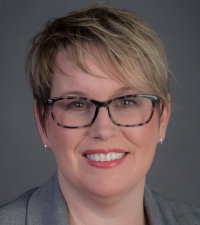
Stephanie Grade
Ovation Heartwood Preserve
“Our staff of caring experts are specially trained in Alzheimer’s and dementia and take the time to learn the history of each new resident and foster a nurturing relationship,” said General Manager Stephanie Grade. “Each memory support program is unique to the individual’s needs. In all plans, we put an emphasis on consistent schedules, engaging activities, recall creating connections, and then connections used as focal points and communication tools. Above all else, we create a safe environment and work closely with family members to focus on resident-centered care. Residents enjoy a stimulating environment with combined support services to monitor residents’ health and medication administration.”
Ovation brings exceptional care and compassion to every memory care resident, from dining, individualized care, multi-sensory experiences, activities, and cognitive-enhancing programs. Stephanie encourages you to visit their community today to see how they can care for your loved one with memory loss.
Battle Memory Loss with Exercise
Did you know that physical activity helps your brain by not only keeping the blood flowing, but also by increasing the chemicals that protect the brain? According to the Mayo Clinic, exercising several times a week for 30 to 60 minutes may have benefits such as: improved memory, reasoning, judgment, and thinking skills for people with mild Alzheimer’s disease or mild cognitive impairment; a delayed start of Alzheimer’s for people at risk of developing the disease, or a slowed progress of the disease; and an increase in size of the hippocampus, the part of the brain that’s associated with memory formation.
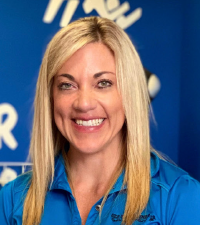
Kristie Egan
See The Trainer
See The Trainer (seethetrainer.com) has a variety of sports medicine products that can help seniors who want to live an active lifestyle protect themselves from aggravating a past injury or a weak part of the body. They also offer exercise products, such as exercise balls, shoulder pulleys, foam rollers, and more, so you can stay fit right from your home!
“If you are a caregiver of someone with memory loss, it may help both you and your loved one to have products that can assist with daily routines,” suggested Owner Kristie Egan. “We carry helpful items such as shower chairs, sock aids, canes, dressing sticks, reachers, and toilet safety seats.”
Visit See The Trainer today to see how they can continue to help you or your loved one live comfortably at home.
Memory loss is a difficult challenge that many seniors and their loved ones face. Don’t let these difficulties overwhelm you and take away from the time you want to spend with your loved one – contact these local businesses to give you a helping hand and some comfort when you need it most.

